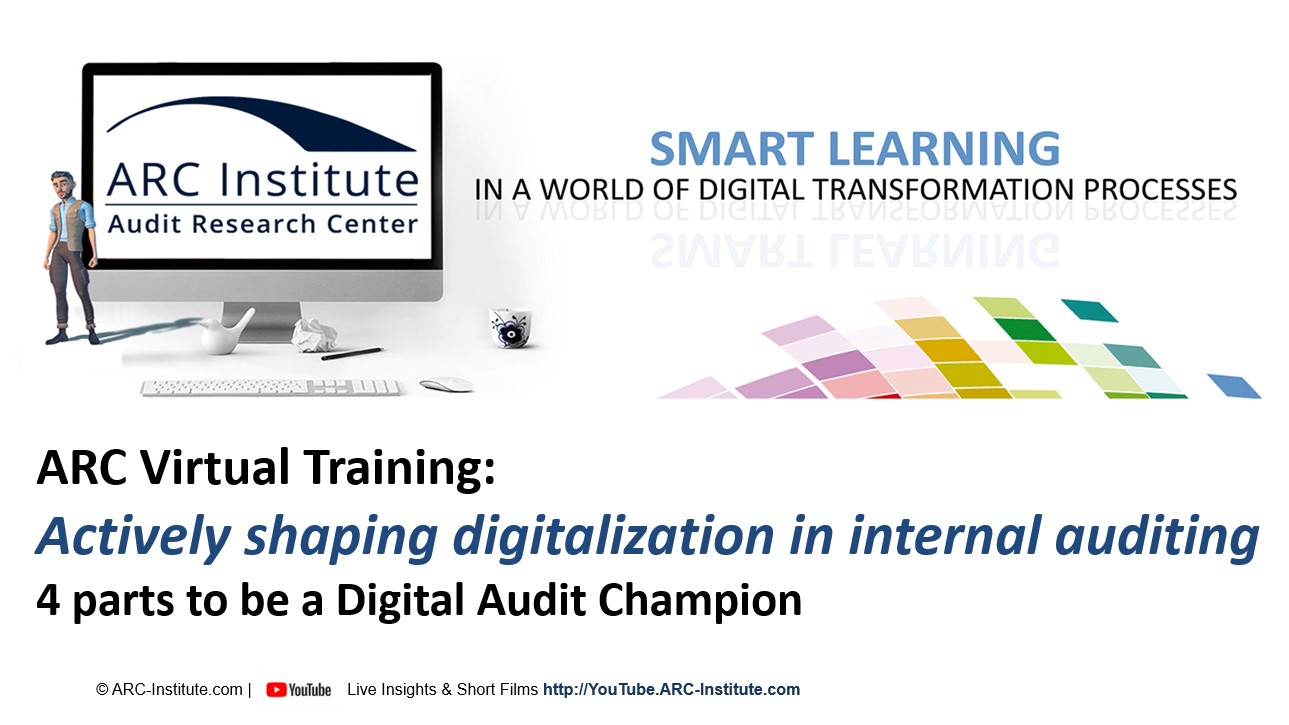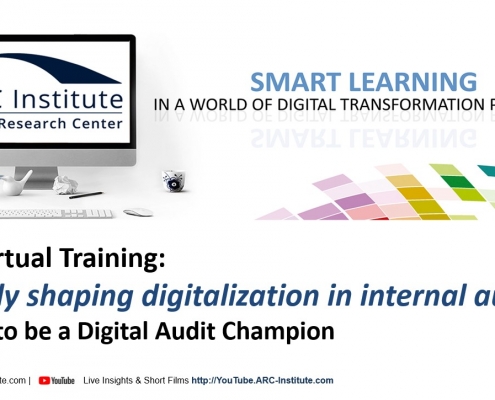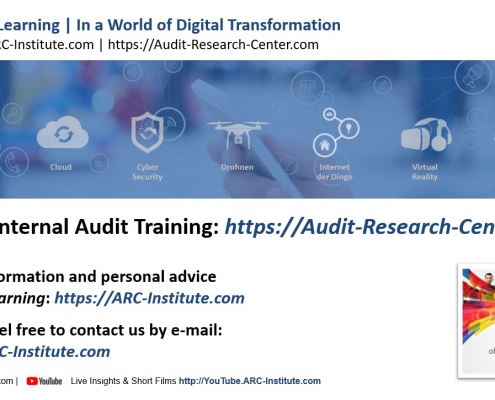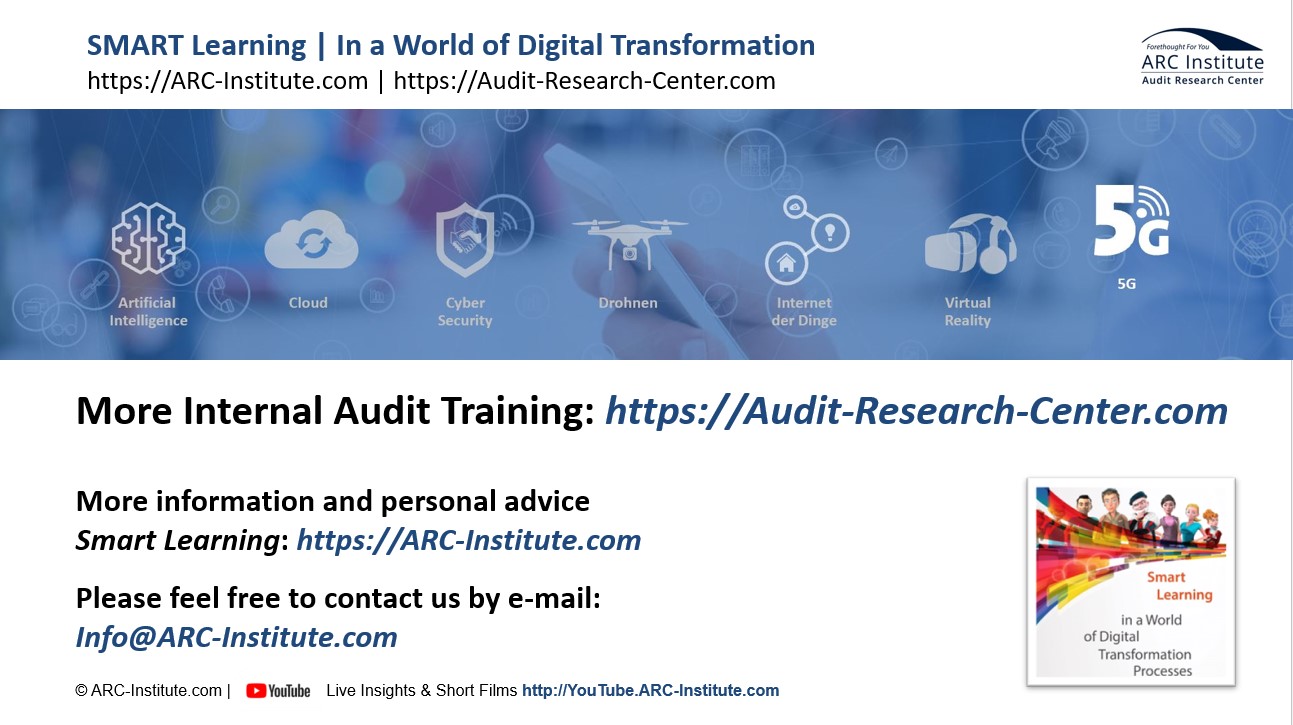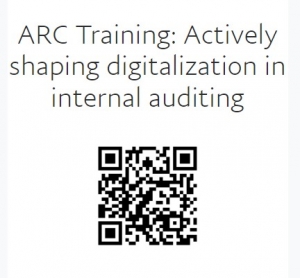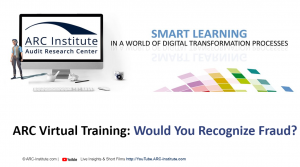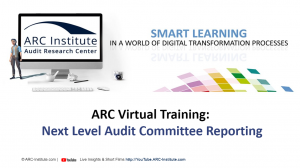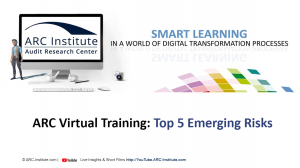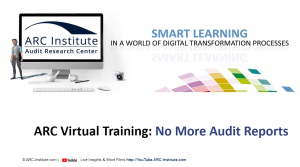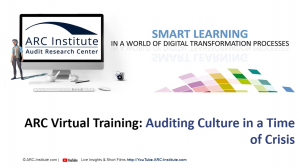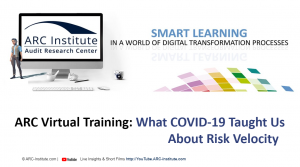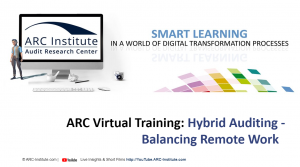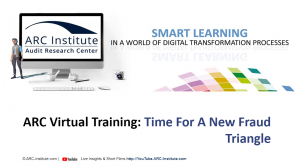Virtual Training Series: Actively shaping digitalization in internal auditing
– 4 parts to be a Digital Audit Champion –
++ Level 1 – Understanding the Challenge – What does digitalization really mean? [100 min. 2 CPE]
Internal Audit in digital Transformation. We show digital transformation models. We are experiencing digitalization. We use digital platforms and we create digital audits, but have we even understood what digitalization means? Can we be sure that we have understood the „option space“ and the „risk area“ that results from digitalization? Digitalization is a complex and comprehensive topic. It enables entirely new processes and business models. It is both an enabler and a challenge. At the first level, we deal with the question of what digitalization means. What are the elements of digitalization? Where are the interfaces to the analog process world? What is the digital option domain? What does digitalization mean for organizations? What management strategies are there to enable, steer and implement digitalization? Only if we understand what digitalization means we can recognize and assess the associated risks. And only if we understand how digitalization can help us, we will be able to shape the digital-analog internal audit of the future.
++ Level 2 – Risks and Strategies – What are the digital risks and the connected strategies to avoid them?
What are digital risks, actually? Is a classic IT audit sufficient to protect an organization from digital-analog risks? Is digital just an extended form of analog from a risk perspective? Why is it so difficult for many companies to succeed digitally? Why are there so many cases of cybercrime? We need to properly analyze these risks that arise in connection with digitalization. Because digitization is not a technology issue, but rather a culture issue. We deal with the question of what risks arise in the context of the digitalization, how we can recognize and assess them in internal audit, and how we can integrate existing audit approaches into our new internal audit procedures. We are looking at new risk models and audit approaches and trying to integrate them into our existing audit universe.
++Level 3 – How to do Audits in a digital world – traditional and new innovative ways of auditing digital risks
In the context of digitalization, it is not enough only to develop new models for audits or to evaluate topics and processes in a different way. We must also ask ourselves whether the existing audit tools are sufficient. How do we audit (risk) „culture“? How do we identify actual risks that will only have an impact in the future? What is a digital stress test? What role will internal audit play in an organization in the future? And what new and old tools are available to us? We develop together new ideas and new concepts for auditing digitalization more effective in the future.
++Level 4 – How to become the digitalaudit champion? – new structures and new competences for the internal auditor of the future
In the first three levels, we dealt with the topic of digitalization from the perspective of auditing. First, we understood what digitalization actually means. Then we looked at the associated risks and opportunities. Finally, we have revised our audit tools. The question now is what the internal auditor of the future might look like? What tools will we use? What skills are required? How do we ensure that internal auditing can respond sustainably and comprehensively to the dynamics on the market in the context of digitalization?
The ARC Institute is a university spin-off. The ARC Institute focuses on networking between science and practice. The ARC Institute provides thought leadership and innovative methods
to support its customers across all industries in digital transformation. The ARC Institute is the innovation and premium holding brand.
The Audit Research Center as part of the ARC Institute supports audit departments globally and especially national IIA associations with yearly 1.800+ training days and transformation services along an audit knowledge value chain.
Execution dates
+ Tue. 10th May 2022: 14:00 – 15:45 CET
+ Thu. 12th May 2022: 14:00 – 15:45 CET
+ Tue. 17th May 2022: 14:00 – 15:45 CET
+ Thu. 19th May 2022: 14:00 – 15:45 CET
[8 CPE ~ IIA Standards]
Conditions and Price
The participation (all four parts) costs a total of 290,- Euro according to preferential conditions. For all international countries we do not charge VAT in B2B based on reverse tax charge procedures. After receipt of your registration you will receive a confirmation of registration and a separate email invoice and login. Please pay the registration fee directly. You will receive a separate invoice by email. The price includes the participation in the lectures of the booked event and seminar documents.
You can cancel up to one week before the event free of charge. Thereafter or if the participant fails to attend, we will charge the entire participation fee. Of course it is possible to change the registered participant.
Didactics | Methodology
Virtual Training Series ZOOM: Interactive lecture, discussion, practical example, case studies, reflection
Please pay here | Enjoy the training
After entering your registration data, please pay here directly at the website, you can pay by bank account, credit card or paypal or simply scan the QR code here.

